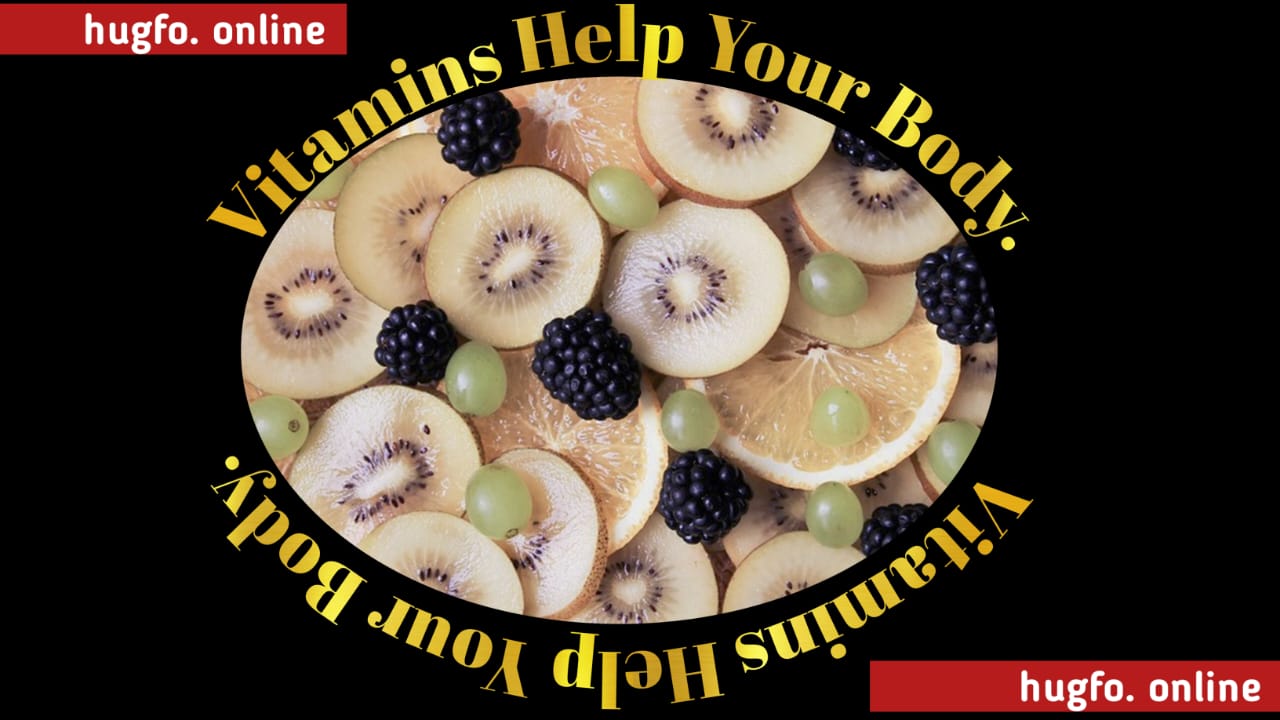Ever wondered how vitamins help your body? They’re like little superheroes, swooping in to save the day when your body needs a boost! Whether it’s energy, growth, or just overall wellness, vitamins play a crucial role in keeping you healthy. From vitamin A for vision to vitamin D for bones, each one has a specific job to do, and believe me, your body relies on them more than you think! Let’s dive deep into the wonderful world of vitamins and uncover how they contribute to your well-being.
vitamins help your body
Before we explore how vitamins help your body, let’s define what they are. In short, vitamins are organic compounds that our bodies need in small amounts to function properly. They’re essential for growth, development, and maintaining health, but here’s the kicker—you can’t produce most of them naturally! That’s why it’s so important to get them through food or supplements.
Types of Vitamins
There are two main categories of vitamins:
- Fat-Soluble Vitamins (A, D, E, K) – These are stored in your body’s fatty tissues and liver.
- Water-Soluble Vitamins (B-complex and C) – These don’t hang around for long since they’re excreted in urine, so you need to consume them more frequently.
Each type plays a unique role in supporting your body, which brings us to the big question…
How Do Vitamins Help Your Body?
Vitamins are involved in nearly every bodily function, from helping your immune system to giving you energy. So, how exactly do they work their magic? Let’s break it down.
1. Boosting Your Immune System
If you’ve ever caught a cold and reached for some vitamin C, you’re already aware of one way vitamins help your body! But there’s more. Vitamins A, D, E, and C are key players in maintaining a healthy immune system.
- Vitamin C boosts the production of white blood cells, which are like the foot soldiers of your immune system, fighting off infections.
- Vitamin D helps regulate your immune responses, ensuring your body doesn’t go into overdrive and attack itself.
Without enough of these vitamins, you’re more susceptible to illness—yikes!
2. Energy Production
Feeling sluggish lately? You might be low on B vitamins!
- B-complex vitamins (like B1, B6, and B12) are essential for converting food into energy.
These vitamins help your body metabolize carbohydrates, proteins, and fats, giving you the energy you need to power through your day.
Without them, even getting out of bed can feel like climbing a mountain!
3. Bone Health
When it comes to bones, everyone knows calcium is crucial, but did you know vitamins also play a huge role?
- Vitamin D helps your body absorb calcium from your diet. Without it, all that milk you’re drinking would be pretty useless!
- Vitamin K ensures that calcium ends up where it belongs—your bones, not your arteries.
These two vitamins work together to keep your skeleton strong and prevent bone diseases like osteoporosis.
4. Healthy Skin and Vision
Want glowing skin and sharp vision? Vitamins are here to help!
- Vitamin A is famous for maintaining good vision. It’s particularly important for night vision and preventing eye diseases.
- Vitamin E acts as an antioxidant, protecting your skin from damage caused by UV rays and pollution. It helps maintain smooth, hydrated skin.
5. Brain Function and Mood Regulation
Your brain might be the most vitamin-hungry organ in your body.
- B vitamins, especially B6, B9 (folate), and B12, are essential for brain health. They help with memory, cognitive function, and even your mood!
- Vitamin D has been linked to improved mood and reduced risk of depression. If you’ve ever heard of “seasonal depression,” low vitamin D levels are often the culprit.
So, if you’re feeling a little down, it might be time to check if you’re getting enough of these vitamins.
How to Get More Vitamins in Your Diet
Getting enough vitamins doesn’t have to be hard! Here are some practical tips for incorporating them into your diet:
- Eat a Rainbow – Different colored fruits and veggies provide different vitamins, so make your plate as colorful as possible!
- Go for Whole Foods – Processed foods often lose their nutritional value. Stick to whole grains, fresh produce, and lean meats for the best vitamin intake.
- Consider Supplements – Sometimes, diet alone doesn’t cut it. That’s where supplements come in! Just make sure to consult a doctor before starting any.
Vitamin-Rich Foods
Here’s a quick rundown of where you can find some key vitamins:
- Vitamin A: Carrots, sweet potatoes, and spinach
- Vitamin C: Oranges, strawberries, and bell peppers
- Vitamin D: Fortified milk, salmon, and sunlight (yes, really!)
- Vitamin E: Almonds, sunflower seeds, and spinach
- B-complex Vitamins: Whole grains, eggs, and meats
FAQs
How do vitamins help your body recover from illness?
Vitamins like C and D are crucial for immune support, helping your body fight off infections faster and more efficiently. Vitamin C increases white blood cells, while vitamin D modulates immune responses, reducing the severity of illnesses.
Can you take too many vitamins?
Yes, particularly with fat-soluble vitamins (A, D, E, and K). Since they’re stored in your body, taking too much can lead to toxicity. Water-soluble vitamins are less risky because they’re excreted, but it’s always best to avoid excessive doses unless advised by a healthcare professional.
Do vitamins give you energy?
Technically, vitamins don’t directly “give” you energy, but they do help your body convert food into energy. B-complex vitamins, in particular, play a significant role in this process.
What happens if you don’t get enough vitamins?
Vitamin deficiencies can lead to a range of health issues, from fatigue and weakened immune function to serious conditions like scurvy (from lack of vitamin C) or rickets (from lack of vitamin D). Each vitamin deficiency has its own set of symptoms, so it’s important to maintain a balanced intake.
Conclusion
So, how do vitamins help your body? In more ways than one! Whether it’s keeping your immune system in check, providing energy, or ensuring strong bones, vitamins are vital for every aspect of health. The good news is, you can easily get most of them through a balanced diet. So, eat well, take care of yourself, and let those vitamins do their thing! It’s a small investment in your health that’ll pay off big time.



